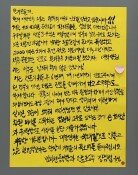It’s time to check the level of pressure on N. Korea
It’s time to check the level of pressure on N. Korea
Posted July. 02, 2018 07:16,
Updated July. 02, 2018 07:16
Reports have emerged that North Korea is stepping up its production of fuel for nuclear weapons and may try to hide those weapons and facilities. NBC News cited five U.S. officials as saying that Pyongyang was increasing its production of enriched uranium for nuclear weapons at multiple secret sites in recent months. According to the Washington Post, the U.S. Defense Intelligence Agency (DIA) has recently drawn up a report, which has concluded that “North Korea does not intend to fully surrender its nuclear stockpile, and instead is considering ways to conceal the number of weapons it has and secret production facilities.”
In fact, speculation had already arisen in earlier stages of negotiation that North Korea, even if it pledges to “completely denuclearize” itself, can still conceal its weapons and materials if it wants and thereby try to remain as a tacit nuclear state. It was such a possibility that experts had warned against, stressing that sanctions on the North should not be loosened until a complete, transparent and regular inspection system is put in place.
Following the June 12 Trump-Kim meeting, however, the set of sanctions on Pyongyang seems to be starting to be broken. China and Russia recently sought to issue a press statement in the name of the United Nations Security Council that calls for the lifting of sanctions, but was met with Washington’s opposition. Japanese media outlets reported that Beijing’s pursuit of the press statement might be because North Korean leader Kim Jong Un had demanded that Chinese President Xi Jinping ease sanctions at an early stage during his visit on June 19.
Measures intended to pressure the North should certainly be managed in a flexible manner for strategic purposes. Yet, it is a hasty decision to not only postpone joint military exercises but also put on hold reconstruction plans for army bases located in frontline areas near the Demilitarized Zone (DMZ). The South Korean government may have considered the “Panmunjom Declaration” and the realization of phased disarmament, but we have not even taken the first step towards denuclearization, which is key to trust building.
In the meantime, the lifting of sanctions on Pyongyang should be in line with the progress made towards denuclearization. The international community including South Korea, the United States and China should reconfirm this principle and objectively observe North Korea’s sincerity and progress. U.S. Secretary of States Mike Pompeo’s visit to Pyongyang scheduled for this Friday will serve as an important yardstick to measure the North’s sincerity. In the following three weeks after the historic summit, North Korea has yet to agree to the timetable and detailed plans for denuclearization. If Kim Jong Un continues to buy time, focusing only on events such as the repatriation of the remains of American soldiers, it will make his will to denuclearize the socialist country doubtful.
Headline News
- Med professors announce intention to leave hospitals starting Thursday
- Bridge honoring Sgt. Moon Jae-sik unveiled in Pennsylvania
- Chief of Staff Chung tells presidential secretaries to stay away from politics
- US FTC bans noncompete agreements
- N. Korea launches cyberattacks on S. Korea's defense companies







